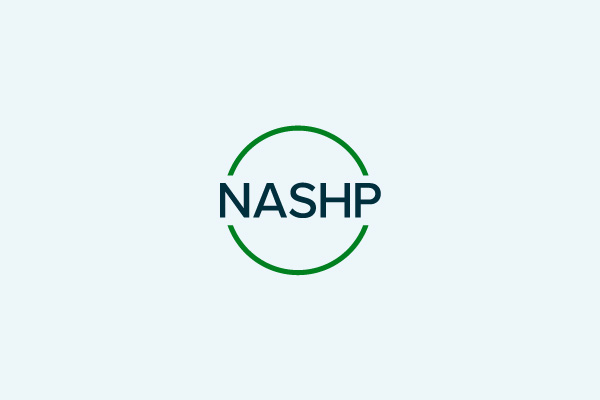This information was collected through a combination of state surveys and NASHP staff research. It offers a snapshot of how the state is defining, training, certifying, and paying for the CHW workforce — as well as how the state is developing cross-agency and state-to-local strategies to improve community health in partnership with CHWs.
This is a dynamic policy space, and states are continuing to develop new approaches. We will continue to make periodic updates to this page. Learn more about state CHW policies across the U.S.
State CHW Definition
State statute defines a CHW as “a liaison, link, or intermediary between health and social services and the community to facilitate access to services and to improve the access and cultural competence of service delivery. A community health worker is a frontline health worker either trusted by, or who has a close understanding of, the community served. Community health workers include Promotores, Promotores de Salud, Community Health Representatives, navigators, and other non-licensed health workers with the qualifications developed pursuant to this chapter, including violence prevention professionals. A community health worker’s lived experience shall align with and provide a connection to the community being served.”
Certification and Training
Through 2022 statute, the Department of Health Care Access and Information (HCAI) was given authority to develop and implement a certificate process for CHW/P/Rs. The state, along with contracted partner R.A.C.E. for Equity, is in the process of conducting community engagement sessions and reviewing existing CHW/P/R training programs to inform and develop the certification and training process.
Medicaid Reimbursement
California’s Medicaid program, Medi-Cal, reimburses for CHW services under its State Plan. The Department of Health Care Services (DHCS) pays managed care plans a capitated rate for CHW services. In July 2022, Centers for Medicare and Medicaid Services approved California’s State Plan Amendment 22-0001, making CHW services a Medi-Cal benefit, effective July 1, 2022. CHW services may be billed with CPT codes 98960, 98961, or 98962.
In Medi-Cal, CHWs may be supervised by a community-based organization, local health jurisdiction, licensed provider, hospital, or clinic, as defined in 42 CFR 440.90. Managed care plans may currently contract with CBOs.
Other Funding or Financing Mechanisms
The 2023 California state budget included appropriation of funds to HCAI to support the CHW/P/R workforce as a part of a larger investment to support the health care and human services workforce.
Key Partnerships
The California Health Care Foundation and Visión y Compromiso have been important partners for DHCS and the California Department of Public Health. The Community Health Workers, Promotoras, and Representatives (CHW/P/R) Coalition includes a number of state partners. The Coalition is comprised of seven lead entities: California Consortium for Urban Indian Health, California Pan-Ethnic Health Network, Latino Coalition for a Healthy California, The Children’s Partnership, Transitions Clinic Network, Roots Community Health Center, and Visión y Compromiso. The California Association of Community Health Workers (CACHW) is another key state partner.
State CHW Legislation
Assembly Bill (AB) 184 states that CHW/P/R initiatives will focus on “implementing the following core competencies: communication skills, interpersonal and relationship-building skills, service coordination and navigation skills, capacity building skills, advocacy skills, education and facilitation skills, individual and community assessment skills, outreach skills, professional skills and conduct, evaluation and research skills, and knowledge base, including knowledge of basic public health principles, and social determinants of health and related disparities, of the community to be served.” Additionally, it requires the focus of the CHW/P/Rs training and scope of work to focus on “lived experience,” which is defined as “personal knowledge of a specific health condition or circumstance, which may include, but not be limited to, Alzheimer’s and other related dementia, climate impact on health, disability, foster system placement, homelessness, justice involved, LGBTQ+ status, mental health conditions, substance use, military service, pregnancy, and birth.”
State Resources
State Overviews
ACO – Accountable care organization
AHEC – Area Health Education Centers
APHA – American Public Health Association
APM – Alternative payment model
CBO – Community-based organization
CDC – Centers for Disease Control and Prevention
CDC CCR Funding – Community Health Workers for COVID Response and Resilient Communities Funding
CHR – Community health representative
CHW – Community health worker
CPT Codes – Current Procedural Terminology Codes
C3 Project – CHW Core Competency Project
FFS – Fee for services
HCSPCS Codes – Healthcare Common Procedure Coding System Codes
HRSA – Health Resources & Services Administration
MCO – Managed care organization
NACHW – National Association of Community Health Workers
SDOH – Social determinants of health
VBP – Value-based payment
State CHW Definition: This category indicates where states have a formal definition of a CHW. In some cases, where there is not a definition in statute, this category may draw information from provider manuals and state websites or reports.
Certification and Training: This category includes information about how CHWs are trained in the state, which entities provide training, whether or not the state runs or recognizes a CHW certification program, and information about the entities that administer existing certification programs.
Medicaid Reimbursement: This category includes information about state Medicaid strategies that provide enrollees access to CHW services. Entries indicate whether state Medicaid programs currently reimburse for CHW services or incorporate CHWs into alternative payment models under the authority of a state plan amendment (SPA), or where states have earmarked funds to support CHW services under the authority of an 1115 demonstration waiver. It also indicates where CHW services might be supported through managed care approaches (e.g., where MCOs are paying for CHW services using administrative dollars or where states are using managed care contracts to incentivize or require MCOs to cover CHW services).
Other Funding or Financing Mechanisms: This category includes information about other state funding or financing approaches that cover CHW services or CHW positions. It includes information about federal grant dollars for which the state is the grantee.
Key Partnerships: This category offers information about key partners outside state government, including state CHW associations and CHW training entities, and highlights formal cross-agency partnerships within the state that support alignment of funding and resources for the CHW workforce.
State CHW Legislation: This category highlights any state legislation relevant to the CHW workforce. This might include statutory language directing agencies to develop a Medicaid reimbursement approach, laws that established state CHW certification, or other relevant statutes.
State Resources: This category offers links to any key reports or resources that states elected to highlight as critical to CHW policy and partnership.



